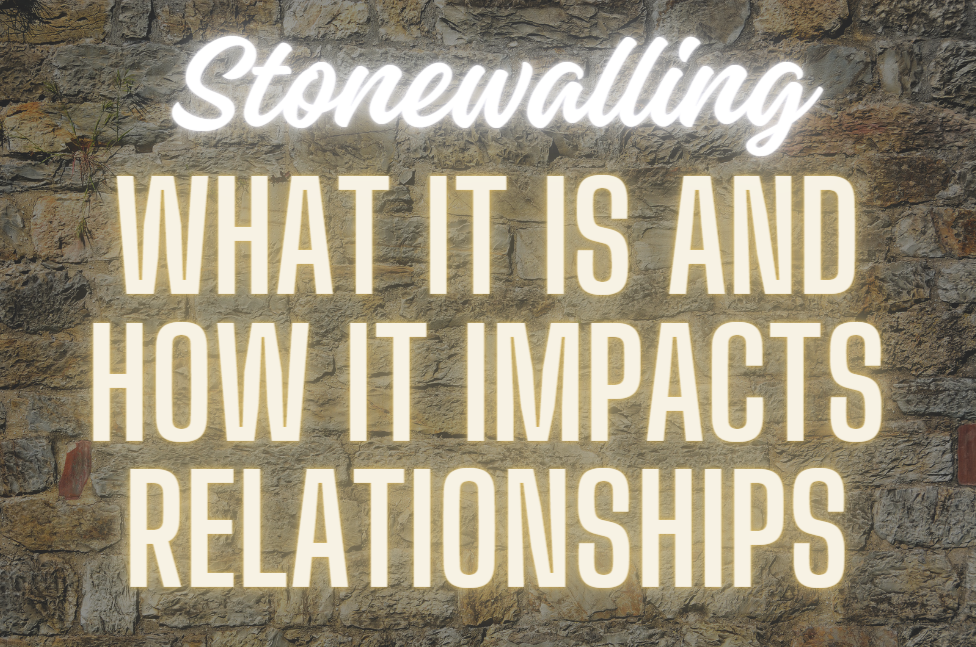Introduction
You’re here because you’ve heard about ‘stonewalling,’ but what does it really mean?
It’s a term often used in relationships, but it’s more than just silent treatment.
It can deeply affect your communication and overall relationship health.
We’ll dive into what stonewalling is, its impacts, and how you can overcome it.
So, don’t feel overwhelmed, you’re not alone in this.
Let’s unravel the mystery of stonewalling together.
Understanding the Concept of Stonewalling
To get a handle on stonewalling, you’ve got to recognize it as a defensive mechanism that shuts down open and healthy communication in a relationship. It’s like a brick wall that’s built up to keep someone out, and you’re on the outside, left feeling unloved and dismissed.
Stonewalling happens when you or your partner stops responding to each other’s attempts at communication. You might see it as the silent treatment, ignoring or avoiding discussions. It’s a harmful tactic that sabotages the growth of a relationship.
To overcome it, you’ve got to identify it, understand why it’s happening, and then find ways to break through that wall. Remember, communication is key in any relationship.
Signs of Stonewalling in Relationships
You might be facing stonewalling in your relationship if you’re noticing a persistent pattern of avoidance, silence, or dismissive behavior from your partner. Stonewalling often manifests as a partner who constantly dismisses your concerns or refuses to engage in conversations about issues that matter to you. They mightn’t respond to your attempts at communication, or they may change the subject abruptly. If you’re feeling like you’re talking to a brick wall, that’s a clear sign of stonewalling.
Additionally, if your partner prefers to withdraw, stay silent, or create physical and emotional distance instead of resolving conflicts, they’re likely stonewalling. Keep an eye out for these signs. Recognizing them is the first step towards addressing this detrimental communication pattern.
The Psychological Effects of Stonewalling
When stonewalling becomes a persistent issue in your relationship, it’s not just the communication that suffers; your mental health can take a serious hit too. You may start to feel isolated, ignored, and unimportant. This can lead to feelings of anxiety, depression, and low self-esteem.
You’re essentially being shut out, which can feel like a form of psychological abuse. It’s not uncommon to question your worth and even your sanity. Over time, this emotional toll can cause you to withdraw, creating a vicious cycle of silence and hurt.
It’s critical to recognize these psychological effects and seek help if you’re in this situation. Remember, everyone deserves to be heard and respected in their relationships.
Impact on Communication in Relationships
While stonewalling can wreak havoc on your mental health, it’s also devastating to the communication in your relationship. It’s like a brick wall that blocks the two-way street of open, honest conversation. You’re trying to talk, express your feelings or resolve conflict, but you’re met with silence or dismissal. This pattern can lead to a breakdown in communication, where you feel unheard, misunderstood, and isolated.
Stonewalling essentially shuts down any opportunity for understanding or connection, fostering resentment and frustration. You’re left feeling disconnected and distanced from your partner. It’s a destructive cycle that, if left unchecked, can erode the very foundation of your relationship.
Addressing stonewalling is crucial to restore and maintain a healthy communication in your relationship.
Strategies to Overcome Stonewalling
Breaking the cycle of stonewalling in your relationship isn’t easy, but it’s certainly possible with the right strategies. Start by identifying when you’re stonewalling or being stonewalled. Awareness is the first step to change.
Open and honest communication is paramount. Don’t hold back your feelings, but express them respectfully. You’re not attacking your partner, you’re addressing an issue.
Practice active listening. It’s not just hearing, but understanding and empathizing.
Take timeouts if needed. They can help reset your emotional state. However, don’t use them to avoid discussions.
Lastly, seek professional help if necessary. Therapists can provide insights and techniques you mightn’t be aware of.
Conclusion
So, you’ve learned what stonewalling is, how to spot it, and its damaging effects on relationships.
Most importantly, you’ve discovered ways to overcome this harmful behavior. Remember, communication is key. Don’t let stonewalling block your path to understanding and connection.
Take the steps needed to break down these walls and build healthier, more open lines of communication. You’ve got this!
FAQs
- Is stonewalling the same as taking a break from a conversation? No, stonewalling is different from taking a healthy break. Taking a break is a mutual decision to pause a conversation, often with the intention to resume later. Stonewalling, on the other hand, is a unilateral decision to shut down communication.
- Can stonewalling be a sign of deeper issues in a relationship? Yes, consistent stonewalling can indicate deeper issues such as unresolved personal trauma, communication barriers, or relationship dissatisfaction. It may also signal the need for professional help like couples therapy.
- How can couples address stonewalling? Open and honest communication about the impact of stonewalling is crucial. Developing healthy communication strategies, like setting aside time to talk and actively listening, can help. In some cases, seeking guidance from a therapist is beneficial.
- Can stonewalling be unintentional? Yes, sometimes individuals may not realize they are stonewalling. It can be an unconscious reaction to stress or conflict. Recognizing and acknowledging this behavior is the first step to change.
- Is stonewalling a form of emotional abuse? While stonewalling can be hurtful, it’s not always considered emotional abuse. However, if it’s used systematically to control, punish, or manipulate a partner, it could be seen as a form of emotional abuse.
- Can relationships recover from stonewalling? Absolutely. With effort and willingness from both partners to improve communication and address underlying issues, relationships can recover and grow stronger.
- Why do people stonewall in relationships? Individuals may stonewall as a defense mechanism to avoid conflict, out of fear of emotional vulnerability, or because they feel overwhelmed. It can also stem from past experiences or learned behaviors.
- What are some resources for dealing with stonewalling in a relationship? Resources include relationship counseling, self-help books on communication, support groups, and educational articles or workshops on relationship skills.




